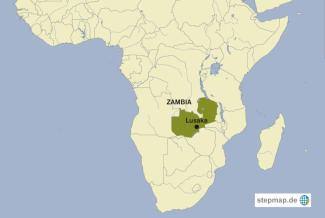Climate change
Engulfed by the lake

Early this month, in the latest instance of a series of tragic accidents, two fishermen drowned on Lake Kariba after a massive wave, driven by furious winds, hit their fishing rig and caused it to capsize. Two other fishermen on the rig survived. Last month, five fishermen drowned on Lake Kariba in separate incidents. In general, the rate of deaths by drowning for fishermen on the lake has been rising steadily in recent years.
The incident in early November followed a sadly familiar course: In the wee hours of the morning, a massive storm built up on the lake and overwhelmed the fishing vessels moored there.
The latest victims were based in Siavonga District on Lake Kariba’s northern shore. The lake, which lies along the border between Zambia and Zimbabwe, is among the world’s largest man-made lakes by volume. The men had been fishing for kapenta, a type of sardine.
Drowning has become an increasing concern in other coastal regions as well. According to the World Health Organization (WHO), drowning is the third leading cause of unintentional injury-related deaths worldwide. In 2015, there were an estimated 360,000 annual drowning deaths worldwide.
The deaths, while tragic in themselves, also cast a cloud on the region’s economic future. After tourism, fishing is the second most important source of employment in the Siavonga district. In Zambia, fish is an important component of food security, with Lake Kariba accounting for 70 % of fish protein, according to the Fisheries Department.
Climate change is a likely cause of the series of drownings, since vessels that previously were seaworthy have proved no match for more powerful storms. Missing upgrades to the vessels may also be an issue. “I suspect that the fishing rig sunk because most of these rigs have mechanical challenges,” said Felix Kanyembo, a Siavonga fish monger.
Accordingly, local authorities have called for tighter construction standards and other security measures to protect the lives of fishermen on the lake.
Others in the region see the problem entirely differently. Local folklore holds that ‘Nyami Nyami’ or ‘Water Spirits’ are causing fishermen to drown on the lake. According to African mythology, ‘Nyami Nyami,’ the River god who lives in Lake Kariba, is a serpent-like creature about three metres wide.
Some members of the local Tonga tribe who witnessed the construction of the Kariba dam wall in the 1950s add a further interpretation. They say the River god is married and that the building of Kariba dam wall separated him from his wife. To the tribesmen, the recent series of drownings is nothing more than the River god’s revenge.
Moses Haambote, a Siavonga resident, is one who believes this interpretation. Locals usually consult elders and perform rituals before going out on the lake, he notes. “If you ignore their guidance, you embark on a trip at your own risk,” he adds.
Derrick Silimina is a freelance journalist based in Lusaka, Zambia. He focuses on Zambian agriculture and sustainability issues.
derricksilimina@gmail.com








